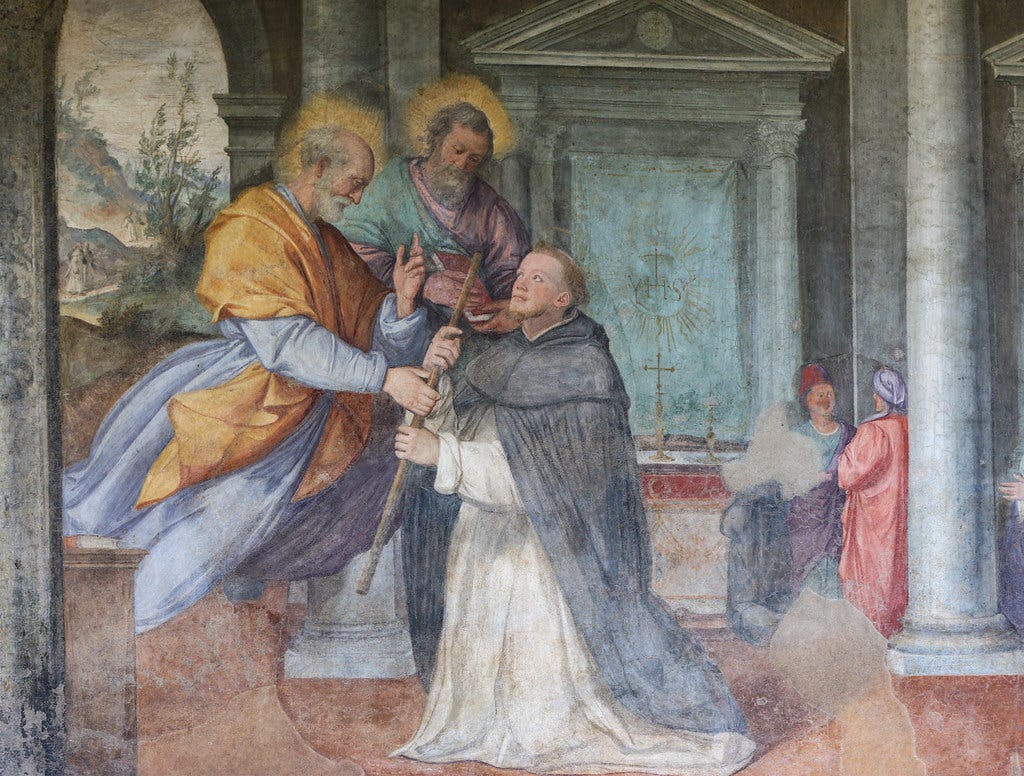
Liars. Cowards. Murderers.
These are the men we celebrate today with the Feast of Peter and Paul.
Paul. Perhaps one of the greatest persecutors of the Christian faith. He imprisoned and murdered, stopping at nothing to drown out the voices of the early Christians.
Peter. An impulsive man, always getting into trouble, putting his foot in his mouth, and starting fights. But most grievously of all, he was a liar and a coward. He denied Jesus, his best friend in all the world, and ran away into the night and who failed to be present at the Cross.
These are the men who the Church celebrates, in whom the Church rejoices.
Why? Because their story is not really about them.
It is about what God can do in a human life. It’s about the power of God’s grace to change anything and anyone. It is about what grace can accomplish in hearts once closed off by pride, fear, and sin.
It is about what happens when forgiveness is not just an abstract idea, but a personal encounter—an encounter with the risen Lord, with Jesus.
Peter, who denied Jesus three times, is met again after the Resurrection and asked three times, “Do you love me?” And he replies “Yes, Lord. You know that I love you.” Peter in one moment is impulsive and cowardly and in the next moment he is confessing that Jesus is the Christ, the Son of the Living God.
And this broken man, this weeping coward, is the rock upon which Christ has built our Church.
He is the rock not because he was strong, but because he let himself be forgiven and he allowed grace and mercy to change him into something altogether greater.
Paul, struck blind by the light of Christ on the road to Damascus, discovers the truth he had tried to silence.
The very Church he sought to destroy became the family he would die for. In the second reading Paul says that he is being poured out as a libation, as a sacrificial offering to God for the sake of Jesus and the Church.
The same mouth that once breathed murderous threats now praising Jesus.
The man who spent his life to imprison and to kill, now pours out his life in service of the Church.
The Church doesn’t celebrate perfect men today. She celebrates redeemed men. Transformed men.
People who gave themselves entirely to God—not because they had it all together, but because they finally knew they didn’t. They knew they needed Jesus.
And that’s good news for us. Because it means there is no failure, no sin, no past so dark that God cannot redeem it.
It means that our weakness, far from disqualifying us, is precisely where God loves to work.
It means that you and I, with all our flaws and fears, our anxieties and disappointments are not too far gone.
Peter and Paul remind us that holiness is not for the perfect—but for all of us, the hurting and the broken, the normal and the strange, the young and the old.
Holiness is for us. For the bold, stubborn, passionate, broken, and deeply loved children of God who say “yes” to grace and “no” to fear.
Peter and Paul show us what’s possible when sinners surrender to love and make room for grace.
And if
God can work with them, just imagine what God can do with us.
Let go and let God do the work.





